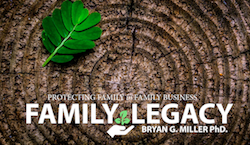It was a pleasant surprise. Earlier this month, I got a message from a former student (see below) just to say, "Thanks!" "Thanks for what?" you ask. For introducing her to the idea that a professional, in the "world" of mental health, has developed a skill set that can be used for more than "just doing therapy."
The message came at the perfect time. Why? Because I had just decided--working with my graphic designer/social marketer expert--to offer, for a limited time, the book I wrote on the subject for free. This was the same content that students, like this one, told me I should put into a book. So, I did.
The book was published, used as a textbook for my course, and has been selling bit-by-bit for the last five years. (You can check it out, if you want--but don't buy it! I am going to give it to you free, remember? Here it is on Amazon)
Since publishing the book, a number of students and other professionals who read the book, have recognized the potential and have started contracting and working with organizations and businesses. For some it has been offering therapy services--such as an Employee Assistance Program--for others it has been business coaching or consulting. But "some" is not enough. There are so many organizations and businesses who could benefit from the support of a professional who understands complex human systems and who has "people skills". . . that I continue to doggedly "preach" to my colleagues the benefits of acting as a consultant.
Now, we are offering you this tool--a free tool--to help you jump start your thinking and consider what more you can do. Feel free to share it with other colleagues. (The book has paid for all it's publishing costs!) We want to see more and more organizations and businesses using professional "people experts" to help their work teams and organizations. We can't leave the role of "expert advisor" to business experts, accountants, and lawyers alone. They are very good at what they do--their areas of specialization. But so are we. They know business, we know people. Expertise in both is necessary for leaders and the organizations they lead, to be highly successful.
What is it? The book, Beyond the Couch, is over 200 pages of information, encouragement, and tools to help you begin to think and begin to engage in the role of a human systems consultant. It includes information on:
identify potential clients
develop proposals and get them funded
decide how much to charge
conduct and analyze projects
utilize the skills you already have
manage a consulting practice
learn how organizations and leaders think about people
My student, as you will see below, decided to throw herself into full-time consulting work. Others have done the same. But most professionals have continued as therapists while adding contracts to their work. Either way, the book will give you a basic understanding of how to get your first contract and begin to help people Beyond the Couch.
One last thing. I will be hosting a video chat in the next month to tell you more about my experiences and answer questions for those who want a little more advice. When you enter your email to download the book you will be added to our list and we will let you know when the video chat will take place. This will also let you email any questions you would like me to address in the video chat.
Finally, here is the student's note (It is unedited except to protect confidentiality. Used with permission.):
Good evening, Dr. Miller, I was one of your students at _____ in the MA in Counseling program. I wanted to share something with you. By the time I took your class, I had already started my clinical internship and, to my dismay, I didn't like it. I spent most of my time doing paperwork and very little of my time actually helping people. Even when I was helping people, each hour felt like I was doing the same thing over and over. It was challenging, but only because I was so bored. The problems people faced were results of systems larger than themselves - and I wanted to tackle systemic problems. However, I was about to finish a degree in counseling; didn't that mean I should become a counselor? I was frustrated and a bit panicked. Then I took your class. In class, you discussed that you did consulting on the side. After class, you spent a little bit of time with me explaining the consulting work and it piqued my interest. I did a lot more research after speaking with you and tucked the idea in the back of my mind - mostly like wishful thinking. Fast forward. I have been working for a little over 3 years now for ______ with their Organizational Consulting unit. I work with an I/O psychologist and have consulted with NUMEROUS organizations - both public and private. The changing projects, brilliant colleagues, and constant challenge is a much better fit for me. I would even love to start my own consulting group some day. I say all of that to simply say thank you. I knew I wanted to help people and I knew I was skilled in understanding complex relationships, but I wouldn't have thought to use those skills in consulting had you not shared your experience with me. I wish you all the best.











